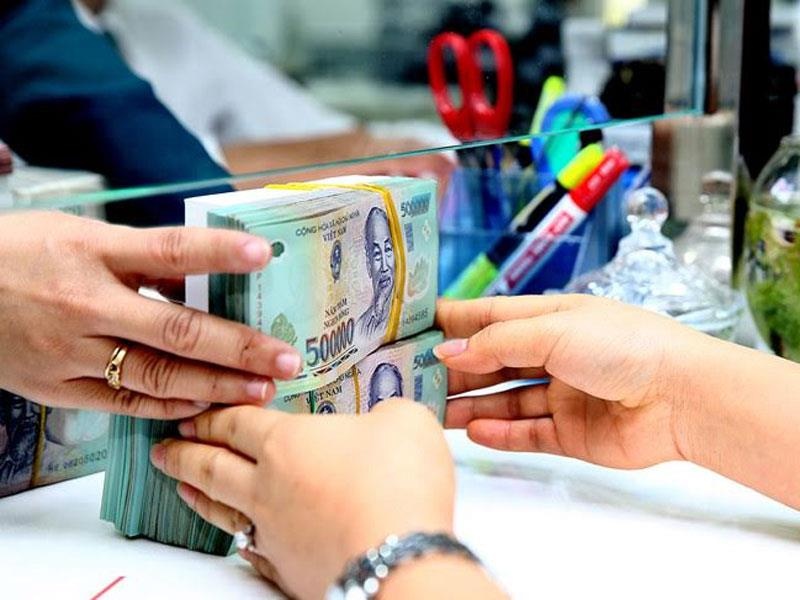Time to open a new chapter in Vietnam's capital market
Standard & Poor's upgraded Vietnam’s sovereign credit rating from BB to BB+ and will bring Vietnam’s government debt instruments one step closer to the international capital market in the future.

The improvement in Vietnam's sovereign credit rating likely reflected the country's efforts to improve its capital market.
According to S&P, there were two main reasons for Vietnam’s upgrade. First, Vietnam’s economy in recent years showed a solid recovery, after lifting mobility restrictions under the pandemic and turning to the "living with COVID" strategy, with high GDP growth and well-controlled inflation. This development strengthened the financial position of the government.
Second, Vietnam's effort in timely paying government-guaranteed debts over the last two years, marking the significant improvements in administrative processes. Therefore, S&P Global Rating increased Vietnam’s long-term foreign and local currency sovereign credit ratings to BB and short-term ratings to B. Furthermore, it posited that the economic outlook was stable.
In Kis Vietnam’s view, there are also potential factors for S&P’s recent upgrade, including the consistent increase in foreign reserves and well-controlled inflation. According to Bloomberg, Vietnam’s foreign reserves have reached 110.90bn USD, which nearly fulfills the current external obligation of USD125.05bn, partly reducing the possibility of default risk at the country's level. Besides, inflation played a key role in the model. In the 2009-2011 period of hyperinflation, the government faced a risk of poor financial position, leading to higher costs and financial burden to external investors and causing a consequently higher probability of default. At present, with proactive tools and mechanisms, Vietnam’s authorities are doing well in keeping inflation under their annual target of 4%, even in the stress of the global commodity market.
The improvement in Vietnam's sovereign credit rating likely reflected the country's efforts to improve its capital market. These could be the first steps to improving Vietnam's financial competitiveness compared to other countries in the Southeast Asia region via increasing the capacity and depth of Vietnam's capital market, which already involves the limit ed participation of foreign investors.
Furthermore, this upgrade presents a chance for Vietnam to reduce the gap in capital market accessibility and increase competitiveness with other countries in the Southeast Asia region. Given the long-standing financial market, Singapore's credibility was outstanding compared to not only countries in the region but also other financial centers in the world. Meanwhile, Vietnam's recent capital market upgrading effort may put competitive pressure on other ASEAN members, particularly Indonesia, which has seen remarkable growth in attracting foreign capital in recent years.
Historical data of countries in the Southeast Asia region showed that there is a positive association between the sovereign credit rating and the capital inflow of a country. Indonesia was a good example. Kis Vietnam discovered that foreign capital to Indonesia in the form of portfolio investment increased significantly as credit ratings rose.Capital inflows to Indonesia’s capital market, especially via the debt instrument of portfolio investment, rose significantly following the S&P’s upgrade from B to BB- in 2004. The impact was stronger in 2011 and 2017 when the country’s sovereign credit ratings climbed to meaningful levels of BB and BBB-. These upgrades significantly change its attractiveness to foreign investors. From 2010-to 2015, the total investment flows to Indonesia’s debt market was USD71.71bn, doubling the value of the 2005-2009 period. In 2015-2020, the value of capital inflows was USD94.71bn, increasing by 32.07% compared to the 2010-2015 period.
Vietnam's experience of Indonesia's success in attracting foreign investors in the capital market was a valuable lesson for Vietnam. The consistent upgrade in sovereign credit rating would demonstrate to foreign investors the government's commitment to a transparent and sustainable capital market, gradually increasing their belief in the government's ability to meet debt instrument obligations. These developments, in turn, would benefit domestic businesses in the long term via lowering funding costs and increasing funding availability.








